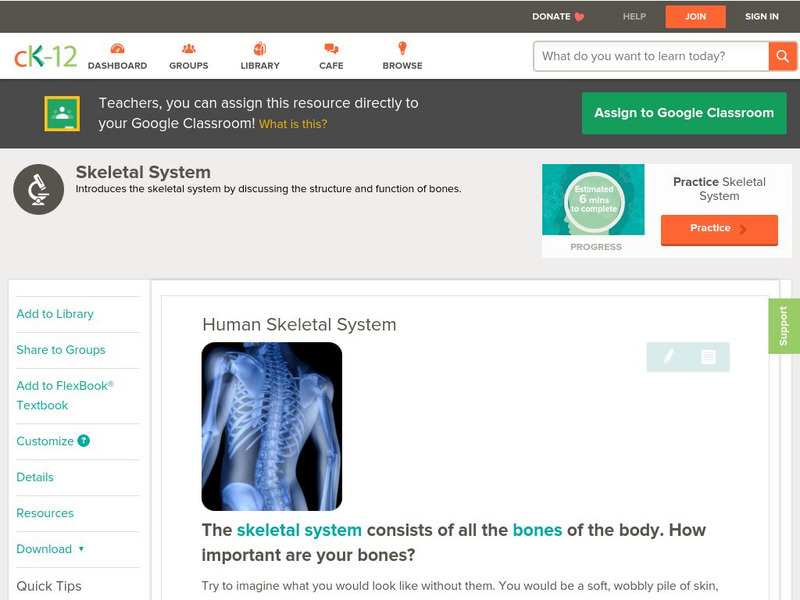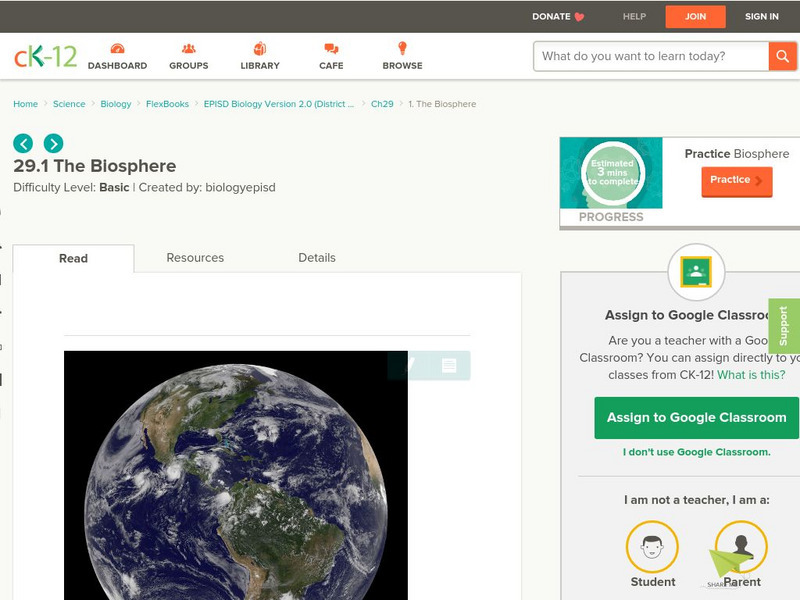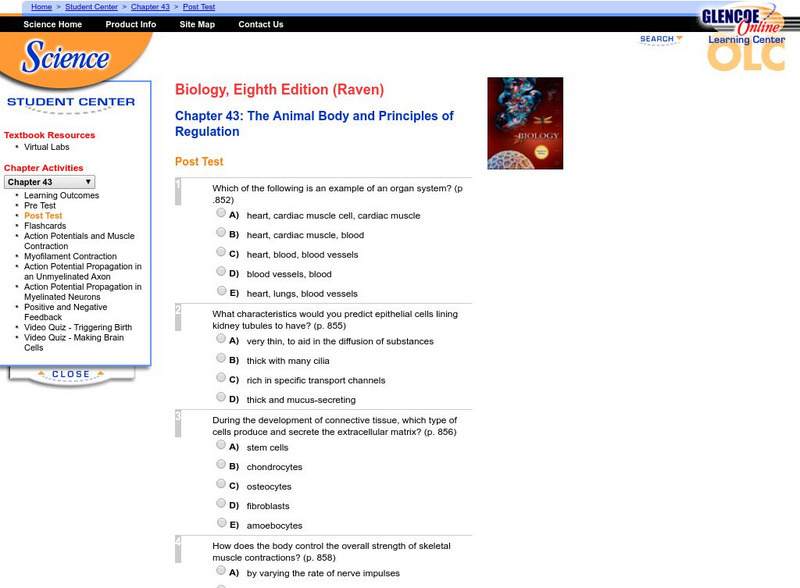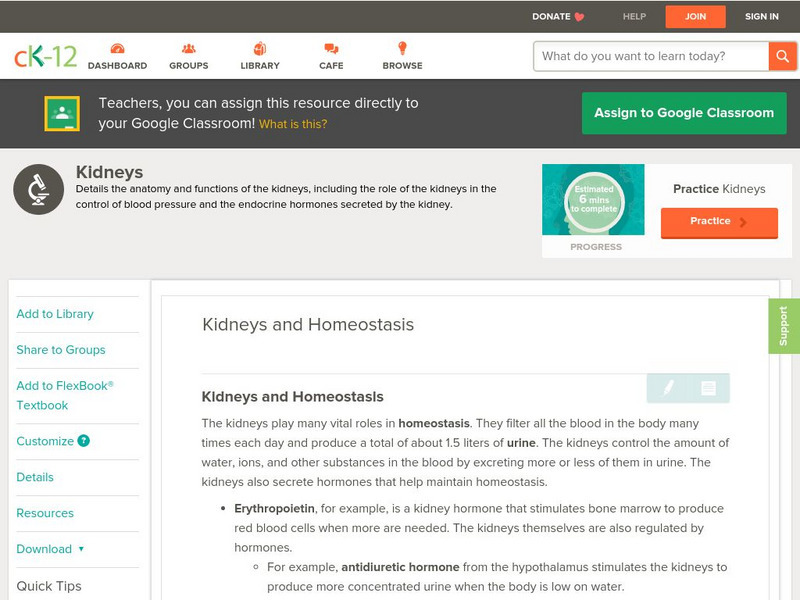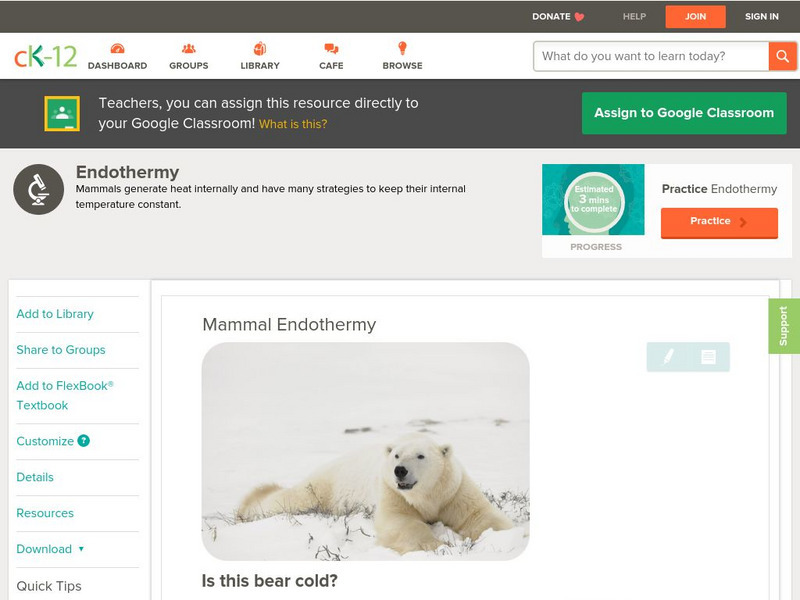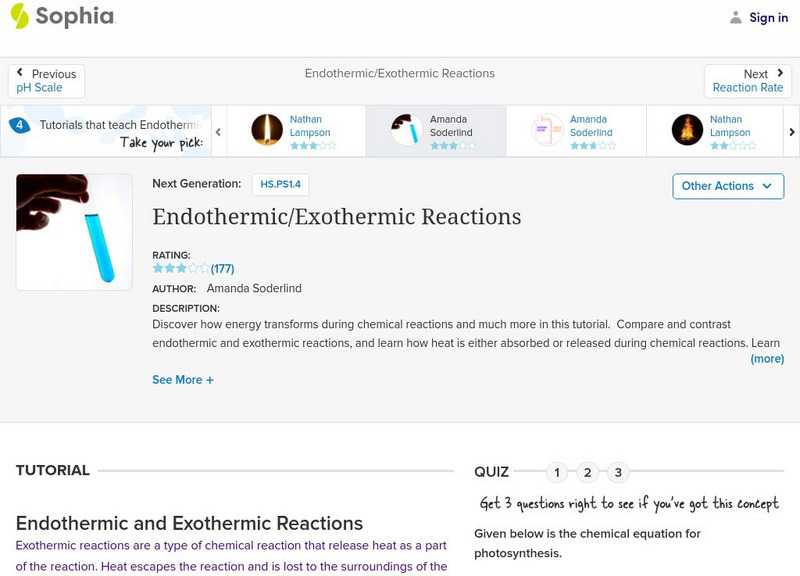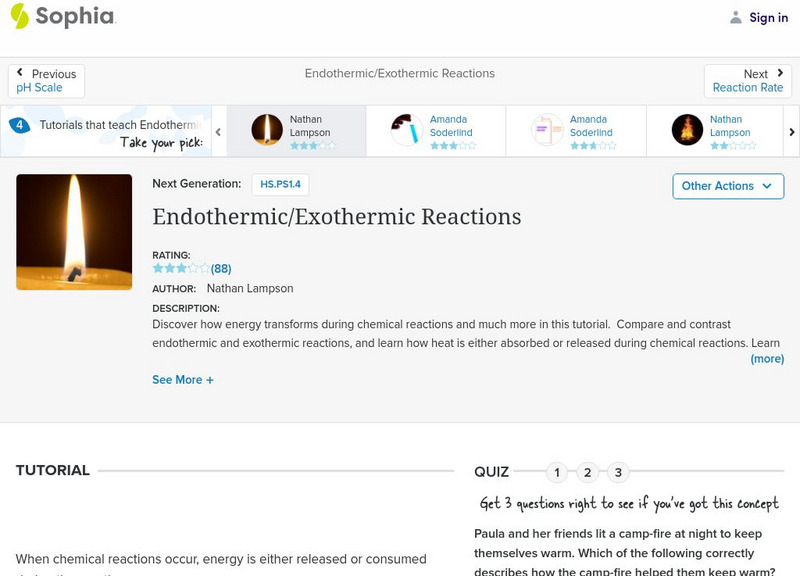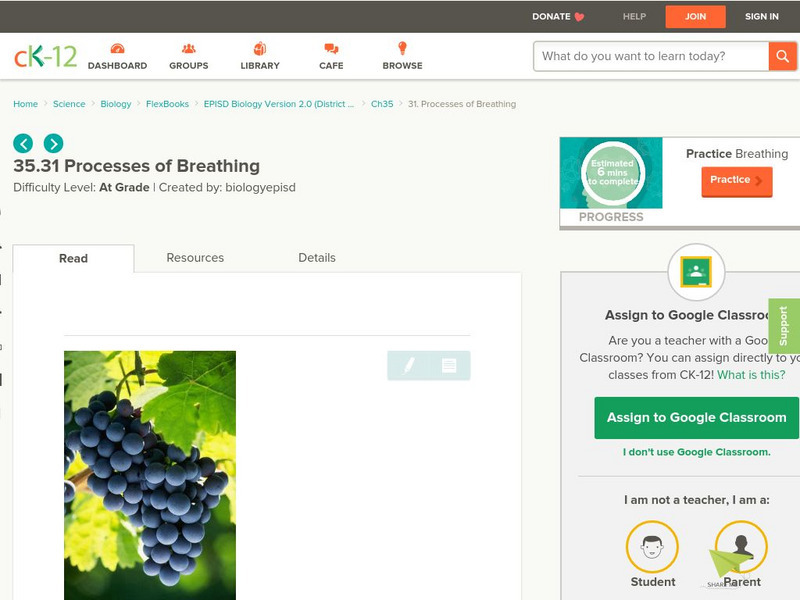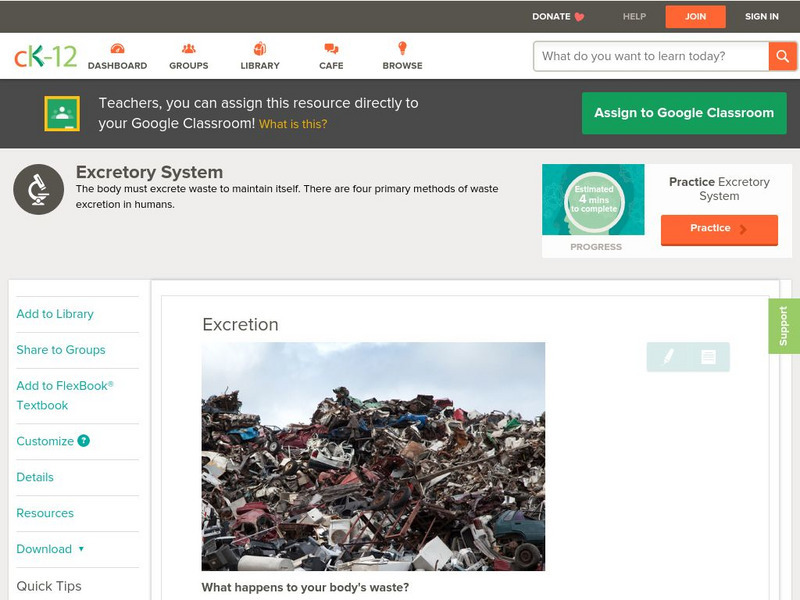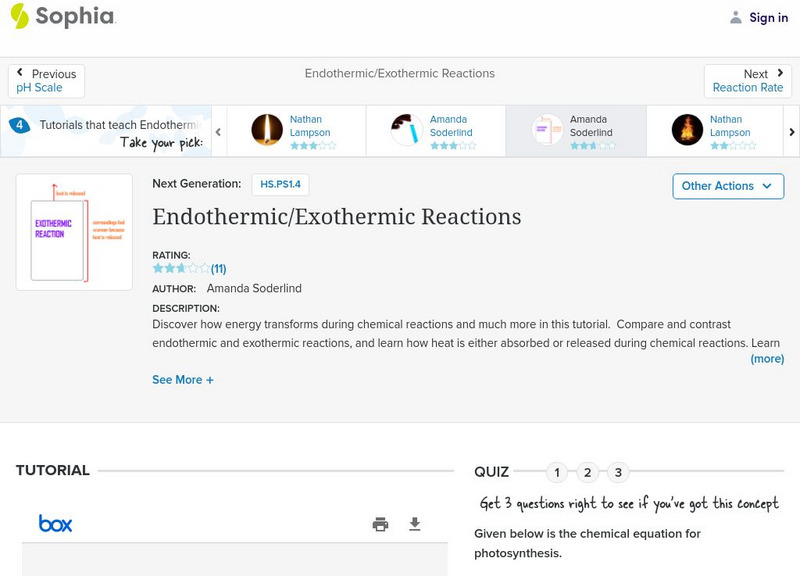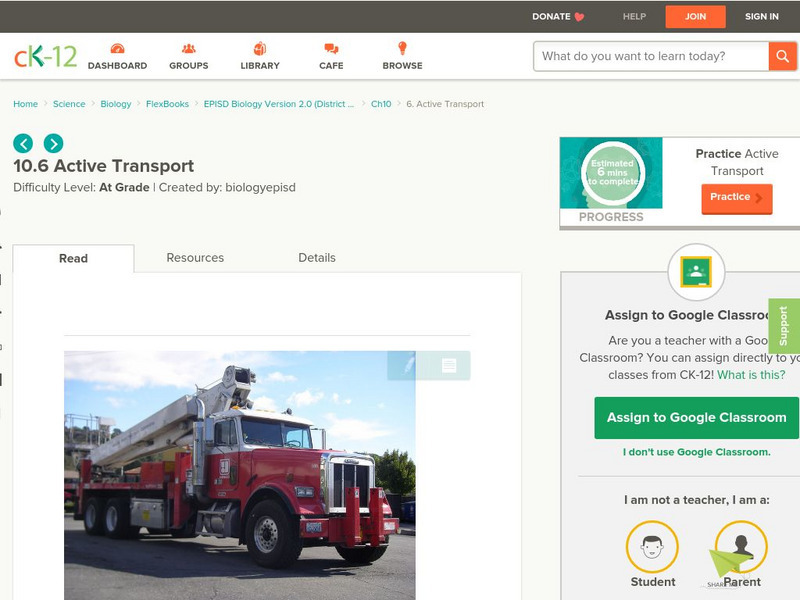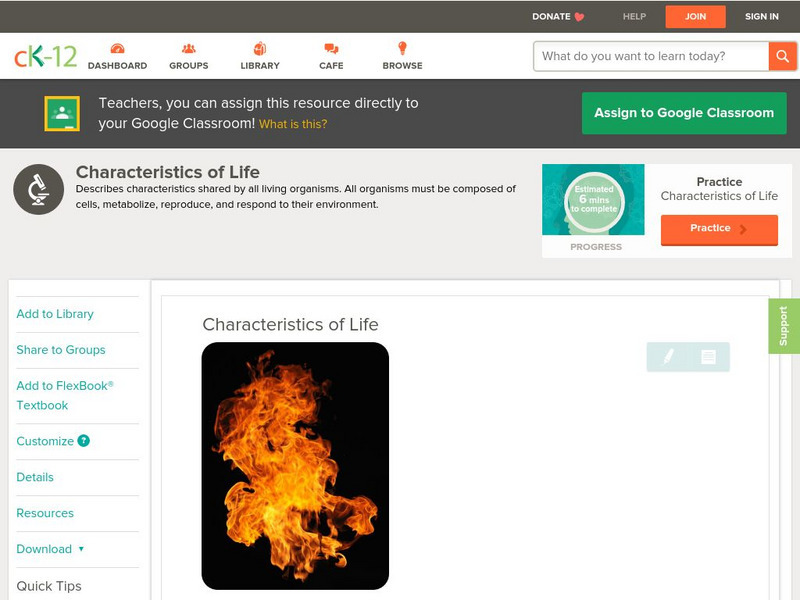Open Curriculum
Open Curriculum: Excretory System
This article helps students define homeostasis and excretion, and why they are necessary for life.
CK-12 Foundation
Ck 12: Biology: Human Skeletal System
[Free Registration/Login may be required to access all resource tools.] Introduces the skeletal system by discussing the structure and function of bones.
BiologyWise
Biology Wise: The 7 Unmistakable Characteristics of Life
Describes the seven characteristics that define life - cells, homeostasis, heredity, use of energy, reproduction, response to environmental stimuli, and evolution and adaptation.
CK-12 Foundation
Ck 12: Episd: The Biosphere
[Free Registration/Login may be required to access all resource tools.] Earth's biosphere is introduced to demonstrate what the Gaia Theory does for the environment. Students will also understand what homeostasis is.
CK-12 Foundation
Ck 12: Episd: Homeostatis
[Free Registration/Login may be required to access all resource tools.] Understand what homeostasis and why it is important to maintain.
CK-12 Foundation
Ck 12: Kidneys
[Free Registration/Login may be required to access all resource tools.] Why are your kidneys so important? Find out in this online tutorial. You will learn to describe the roles of the kidneys in homeostasis.
McGraw Hill
Glencoe: Biology: The Animal Body and Principles of Regulation Post Test
Students can test their knowledge of the principles of regulation with this seven question multiple-choice quiz.
McGraw Hill
Glencoe: Biology: The Animal Body and Principles of Regulation Pretest
Students have the opportunity to take this five question pretest to assess their knowledge of the principles of regulation in the human body.
Sumanas
Sumanas Inc: Life: The Science of Biology: The Mammalian Kidney
Use this tutorial to help supplement your learning about how the kidneys work.
CK-12 Foundation
Ck 12: Biology: Kidneys
[Free Registration/Login may be required to access all resource tools.] Describes the roles of the kidneys in homeostasis.
CK-12 Foundation
Ck 12: Biology: Mammal Endothermy
[Free Registration/Login may be required to access all resource tools.] Describes how mammals maintain their body temperature.
BiologyWise
Biology Wise: Active Transport Process
Explains what happens during the active transport process where substances are moved across a cell membrane.
Sophia Learning
Sophia: Endothermic/exothermic Reactions: Lesson 4
This lesson explains the difference between endothermic and exothermic chemical reactions. It is 4 of 4 in the series titled "Endothermic/Exothermic Reactions."
Sophia Learning
Sophia: Endothermic/exothermic Reactions: Lesson 1
This lesson explains the difference between endothermic and exothermic chemical reactions. It is 1 of 4 in the series titled "Endothermic/Exothermic Reactions."
Sophia Learning
Sophia: Endothermic/exothermic Reactions: Lesson 2
This lesson explains the difference between endothermic and exothermic chemical reactions. It is 2 of 4 in the series titled "Endothermic/Exothermic Reactions."
CK-12 Foundation
Ck 12: Processes of Breathing
[Free Registration/Login may be required to access all resource tools.] In the following online lesson students will explain the processes of ventilation, gas exchange, and gas transport. Students will describe the role of gas exchange...
CK-12 Foundation
Ck 12: Life Science: Protists Nutrition
[Free Registration/Login may be required to access all resource tools.] The cells of protists need to perform all of the functions that other cells do, such as grow and reproduce, maintain homeostasis, and obtain energy. They also need...
CK-12 Foundation
Ck 12: Life Science: Excretion
[Free Registration/Login may be required to access all resource tools.] You might have noticed that sometimes your urine is darker than usual. This can happens when your body is low on water and trying to reduce the amount of water lost...
Sophia Learning
Sophia: Endothermic/exothermic Reactions: Lesson 3
This lesson explains the difference between endothermic and exothermic chemical reactions. It is 3 of 4 in the series titled "Endothermic/Exothermic Reactions."
CK-12 Foundation
Ck 12: Active Transport
[Free Registration/Login may be required to access all resource tools.] This tutorial serves as an introduction to active transport and explains how to distinguish active transport from facilitated diffusion.
CK-12 Foundation
Ck 12: Viruses & Human Diseases
[Free Registration/Login may be required to access all resource tools.] Viruses cause many human diseases. They can range from mild to fatal. This activity explains how viruses cause human disease.
CK-12 Foundation
Ck 12: Characteristics of Life
[Free Registration/Login may be required to access all resource tools.] Videos, texts, activities, and assessments about the factors that characterize living things.
CK-12 Foundation
Ck 12: Life Science: Characteristics of Life
[Free Registration/Login may be required to access all resource tools.] How do you define a living thing? What do mushrooms, daisies, cats, and bacteria have in common? All of these are living things, or organisms. It might seem hard to...
CK-12 Foundation
Ck 12: Life Science: Cell Transport
[Free Registration/Login may be required to access all resource tools.] Cells are found in all different types of environments, and these environments are constantly changing. For example, one-celled organisms, like bacteria, can be...

